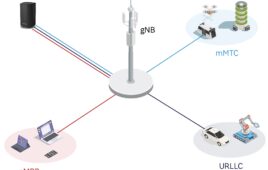LAS VEGAS – It will do no good to leap into 5G willy-nilly. Competitive carriers must carefully choose their use cases and then roll out technologies that will support the necessary requirements.
That was the message from a number of speakers at the Competitive Carriers Association’s Mobile Carriers Show on Thursday, and those hammering such thoughts could be found on both the keynote stage and in panel sessions.
“You need to define your use case,” Nokia’s U.S. Majors CTO David Debrecht said on the main stage. “There’s a whole lot of ways to try to connect American the beautiful, but you need to figure out how you want to do it and what you’re trying to accomplish. Until you do that, you can just churn and churn and churn. There’s always going to be a 5G, a 6G coming down the road, but if you don’t make your decision right now on what solution you want to provide, what business you want to be in, and where you want to play, you’re going to continually churn and get into paralysis.”
Debrecht’s point was echoed by Sprint’s VP of Network Planning Jay Bluhm, who also noted network changes should be driven by use cases. So, he said, carriers should look to open up services that people are willing to pay money for. But Bluhm said demand for certain use cases will also be a factor, and competitive carriers should respond to hotspots of demand for certain services in rural markets just as operators do in urban areas.
When it comes to rural areas, operators should target local business opportunities to connect manufacturing plants and transportation companies in the area to the Internet of Things, Ericsson North America’s Director of Network Product Solutions Stefan Calmerman commented in a network transformation panel. Fixed wireless might be another use case to consider to bring faster speeds to customers, he said.
“To look at where you start with the core transformation, I think you have to start with the use cases,” Calmerman said. “What makes sense from your point of view … because building a network to prepare for something and you might not have any business to me does not make any sense. So I would look at the business opportunities that you have. Especially the ones operating locally in your area you should have a better opportunity to get their business than the big nationwide operators. And there’s a lot of new use cases coming in, mainly with IoT that allows you to do this.”




